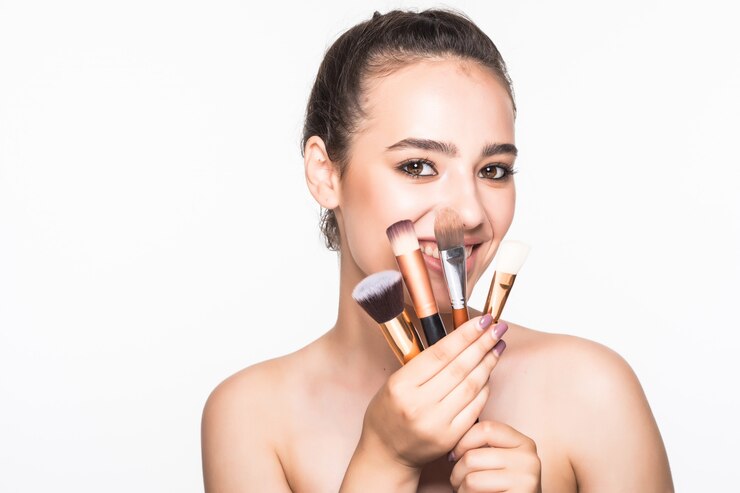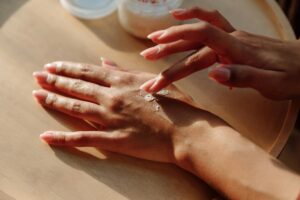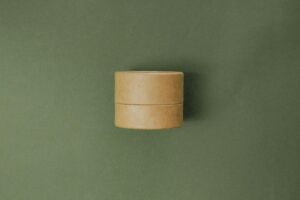Keeping your makeup brushes clean is crucial for maintaining clear skin. Dirty makeup brushes can harbor bacteria, which can lead to breakouts and other skin issues. While there are many methods to clean your brushes, using vinegar is a natural and effective way to remove dirt and bacteria. Here are three easy methods to clean makeup brushes with vinegar at home.
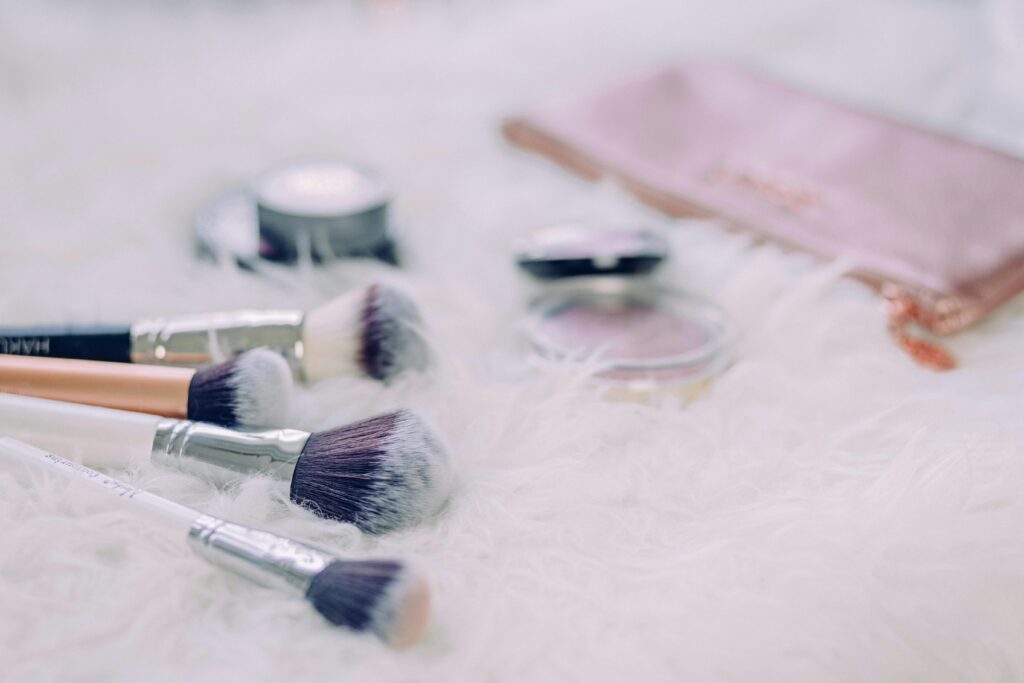
Why Vinegar?
Vinegar is a versatile household item that has been used for cleaning for centuries. Its natural acidity makes it effective in breaking down grime and killing bacteria. When it comes to clean makeup brushes, vinegar can penetrate deep into the bristles, removing makeup residues and disinfecting them simultaneously.
Vinegar and Water Solution
This method is one of the simplest and most effective ways to clean your makeup brushes. It requires minimal ingredients and time.
Ingredients:
1 cup warm water
1 tablespoon white vinegar
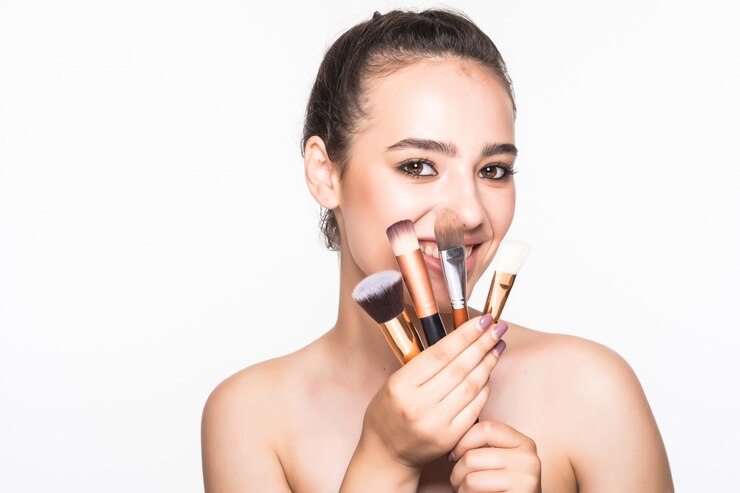
Instructions:
- Mix the warm water and vinegar in a bowl. The warm water helps to dissolve makeup residues, while vinegar acts as a disinfectant.
- Dip your brushes into the solution and swirl them around for a few minutes. Ensure that the bristles are fully submerged but avoid getting water into the ferrule (the metal part of the brush) to prevent loosening the glue that holds the bristles.
- Rinse the brushes under lukewarm water until the water runs clear. This step removes any remaining vinegar solution and makeup residues.
- Gently squeeze out excess water and lay the brushes flat to dry on a clean towel.
- Make sure to shape the bristles into their original form while drying.
Why it Works:
Vinegar’s acidity helps break down makeup residue and kill bacteria, while warm water dissolves oils and dirt. This simple solution is both effective and budget-friendly.
According to a study published in the Journal of Environmental Health, vinegar has been proven to reduce microbial contamination, making it an excellent natural disinfectant.
Read here: Does vinegar kill germs? – David Suzuki Foundation
Vinegar and Dish Soap
Combining vinegar with dish soap provides an extra cleaning boost, especially for brushes that have accumulated a lot of product. Dish soap is designed to cut through grease and can effectively remove oily makeup residues from brushes.
Ingredients:
1 cup warm water
1 tablespoon white vinegar
A few drops of dish soap
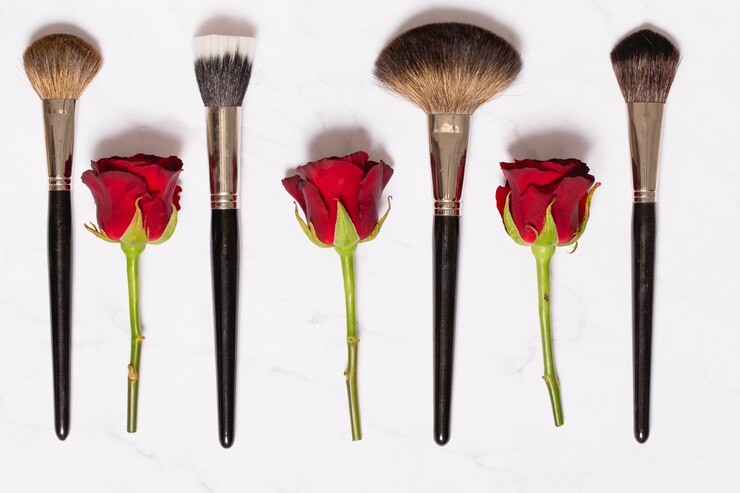
Instructions:
- Combine the warm water, vinegar, and dish soap in a bowl. The dish soap will help break down oils and grease from makeup products.
- Swirl your brushes in the mixture, ensuring the bristles are fully submerged. Gently massage the bristles to loosen any stubborn makeup.
- Rinse the brushes under running water, gently squeezing out the soap. Continue rinsing until no soap residue remains.
- Lay the brushes flat on a towel to dry. Reshape the bristles if necessary and allow them to air dry completely.
Why it Works:
Dish soap cuts through grease and makeup residue, while vinegar disinfects the brushes. This combination ensures a thorough clean, leaving your brushes looking and feeling fresh.
The effectiveness of dish soap in removing oils is supported by its widespread use in cleaning greasy dishes, as noted by the American Cleaning Institute.
Deep Cleaning with Vinegar and Olive Oil
For brushes that need a deep clean, combining vinegar with olive oil can be particularly effective. Olive oil not only helps to break down makeup but also conditions the bristles, keeping them soft and preventing them from drying out.
Ingredients:
1 tablespoon white vinegar
1 tablespoon olive oil
1 cup warm water
Few drops of dish soap
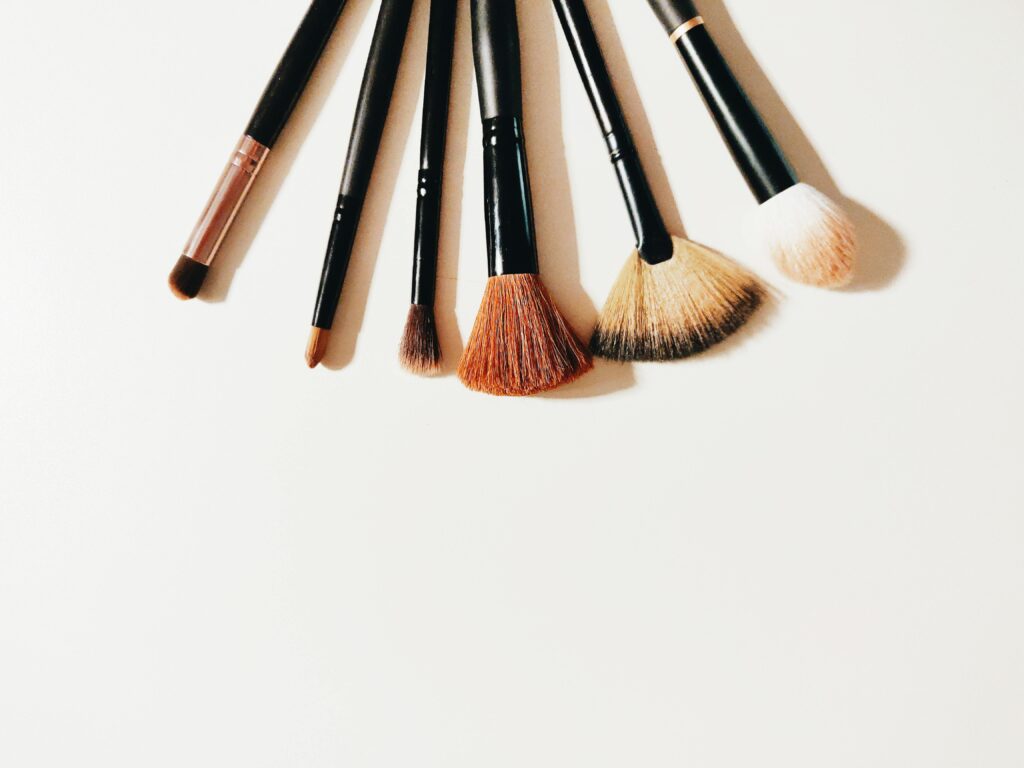
Instructions:
- Mix the vinegar, olive oil, dish soap, and warm water in a bowl. The olive oil will help condition the bristles while breaking down stubborn makeup.
- Dip the brushes into the solution and swirl them around to loosen makeup and dirt. The oil will help lift makeup residues, while the vinegar disinfects the brushes.
- Rinse thoroughly under running water until the water runs clear. Ensure all traces of oil and vinegar are removed from the brushes.
- Squeeze out excess water and lay the brushes flat to dry. The bristles will be soft and conditioned, ready for their next use.
Why it Works:
Olive oil conditions the bristles, preventing them from drying out, while vinegar provides a deep clean and disinfection. Olive oil is known for its moisturizing properties, which can help maintain the quality of natural bristles.
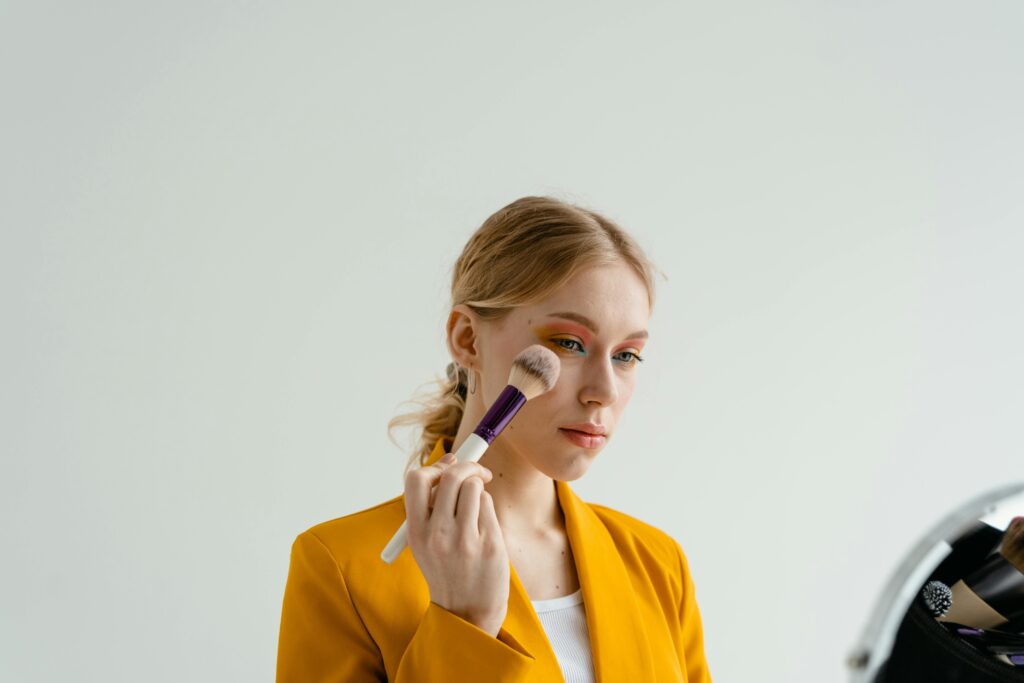
Additional Tips for Best Results
Avoid Water Damage:
Always avoid getting water into the ferrule (the metal part of the brush) to prevent loosening the glue that holds the bristles. Water in the ferrule can weaken the glue, leading to shedding bristles.
Proper Drying:
Dry brushes flat or with the bristles pointing down to avoid water damage to the handle. Hanging brushes upside down can help water drain away from the ferrule.
Regular Cleaning:
Clean your brushes at least once a week to maintain their performance and prolong their lifespan. Regular cleaning prevents the buildup of makeup residues and bacteria, ensuring your brushes are always ready for use.
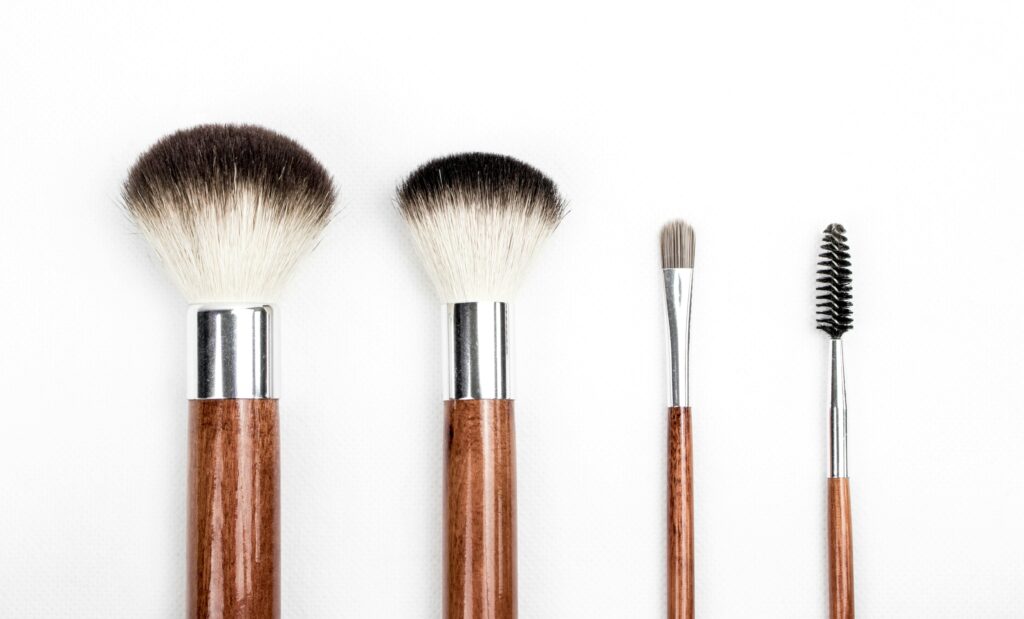
Common Mistakes to Avoid
Using Hot Water:
Hot water can damage the bristles and the glue that holds them together. Always use lukewarm water for cleaning.
Skipping Deep Cleans:
While regular quick cleans are essential, deep cleaning your brushes periodically ensure that all residues and bacteria are removed.
Improper Storage: Store your brushes in a clean, dry place. Avoid leaving them in damp environments, as this can encourage mold growth.
Scientific Backing
Studies have shown that makeup brushes can harbor a variety of bacteria, including Staphylococcus aureus, which can cause skin infections (Study Shows Makeup Brushes Hold More Bacteria Than a Toilet Seat).
Regular cleaning with an effective disinfectant like vinegar can significantly reduce bacterial contamination.
Additionally, vinegar’s natural acidity makes it a powerful cleaning agent, capable of breaking down tough residues and killing bacteria.
DIY vs. Commercial Cleaners
While commercial brush cleaners are available and can be very effective, DIY methods using natural ingredients like vinegar and olive oil offer several advantages.
They are cost-effective, eco-friendly, and free from harsh chemicals. Moreover, these natural methods are gentle on the skin, making them suitable for those with sensitive skin or allergies.
Conclusion
Cleaning your makeup brushes doesn’t have to be a chore. With these three easy methods using vinegar, you can ensure your brushes are free from dirt and bacteria, promoting healthier skin and better makeup application.
Whether you opt for a simple vinegar and water solution, a boosted vinegar and dish soap mix, or a deep clean with vinegar and olive oil, you’ll be able to maintain your brushes’ quality and performance.
Try these methods today and see the difference for yourself!
References
Journal of Environmental Health: https://www.ncbi.nlm.nih.gov/pmc/articles/PMC3763582/”Antimicrobial Properties of Vinegar
American Cleaning Institute: https://www.cleaninginstitute.org/”Effectiveness of Dish Soap
Study on Staphylococcus aureus in Makeup Brushes: https://www.ncbi.nlm.nih.gov/pmc/articles/PMC4780048/”Bacterial Contamination of Makeup Brushes
Olive Oil Moisturizing Properties: https://www.ncbi.nlm.nih.gov/pmc/articles/PMC3317222/”Benefits of Olive Oil for Skin
